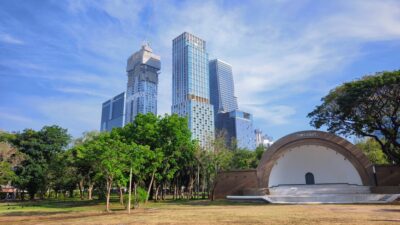Colliers suggests lucrative opportunities to transform Philippine real estate assets
The property consultancy firm believes that this is crucial for the sector’s survival amid pandemic

As the pandemic takes a toll on the Philippine economy, property consultancy firm Colliers International Philippines recommends property owners and landlords to consider repurposing their assets based on consumers’ evolving behaviour, reported Business World.
Though asset adjustments would depend on the real estate category, they believe that the evolving needs and financial capabilities of consumers should still be recognised.
This is particularly crucial for businesses that plan to establish a hub-and-spoke model, which means “occupiers reduce the reliance of a single headquarters location for a more dispersed occupancy strategy,” they explained in the report.
For developers that lease mall spaces, the firm suggests transforming vacant spaces into co-working venues or additional space for warehouses, particularly since movement restrictions have been keeping the foot traffic in malls low.
More: The Philippines finds REIT timing for property investment
Hotel operators, which is expected to receive only 30 percent occupancy in 2020, can also turn their leasing spaces into co-working spaces, as well as co-living facilities. Meanwhile, residential developers are advised to offer more appealing payment terms to continue luring investors and tenants.
As for warehousing companies, Colliers proposes digitising its operations to cater to the growing needs of the e-commerce industry.
“The Philippine economy continues to reel from the impact of the pandemic and lockdowns, officially entering into a recession. Colliers believes that conversion and repurposing of assets are crucial amid the pandemic and global economic downturn,” the report concluded.
Recommended
Meet the expert helping overseas investors crack Australia’s property market
Ivan Lam of property advisors Charter Keck Cramer helps clients navigate Australia’s complex real estate dynamics
6 spots to check out in Singapore’s Bukit list neighbourhood
The sought-after Singapore neighbourhood offers lifestyle amenities, green space, and new residential projects
Thailand’s real estate sector watches closely as the Shinawatras return to power
Time will tell if the return to power in Thailand of the Shinawatras will lift the country’s ailing real estate sector
China’s homebuying surge: Can new stimulus measures keep the market rally alive?
Stimulus measures have sparked a surge in homebuying activity around China, but many are sceptical the shift will endure








